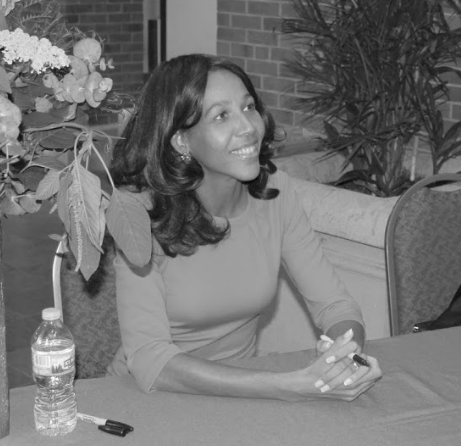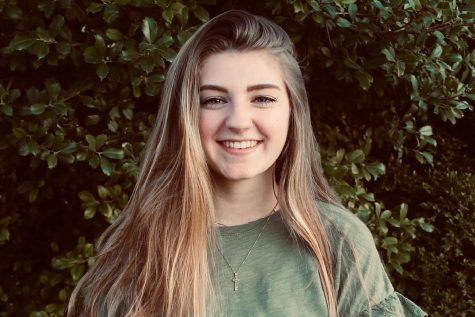“My Grandfather Would Have Shot Me”
How an ordinary trip to the library turned into accidentally finding out her family’s biggest secret.

“I will put away the microphone and I want you to look at me,” she said, as she walked in front of the audience. A silence fell as everyone looked at the woman on the stage. “You probably would not think that I am German. Or that I am the granddaughter of a Nazi.”
On Oct. 25, New York Times best-selling author Jennifer Teege spoke to the crowded auditorium of the business school. She told the unbelievable story of her life as described in her novel, “My Grandfather Would Have Shot Me: A Black Woman Discovers Her Family’s Nazi Past.”
Teege did not know of her family’s heritage until a shocking moment when she was 38 years old. One average morning in Hamburg, Germany, she went to the library in her town. She found herself in the psychology section when the spine of a book stood out to her for no specific reason.
As soon as Teege opened it, her eyes were encapsulated by photos of two women that seemed familiar to her. When she read the caption of the photos, it was solidified – these women were her biological mother and grandmother, and they were the daughter and wife of Amon Goeth. That average morning, Teege realized she is one of the living descendants of a concentration camp commandant.
“The discovery plunged me into the deepest crisis I’ve ever been in in my life,” Teege said, “I felt like I couldn’t stand, I couldn’t breathe, but I was not crying or screaming – everything became silent.”
That day would separate Teege’s life into a ‘before’ and an ‘after.’
To this day, Teege does not remember leaving the library that afternoon. She recalls going home and standing in front of her bathroom mirror with a picture of her grandfather, questioning “This man – am I like him? Do I carry something of him within me?”.
The event had such an impact on Teege’s life that she went to therapy and struggled with PTSD for years. All from that traumatic day at the library that she never could have imagined.
After the initial shock, Teege read the book and realized that it was full of her family secrets – her grandfather is the commandant depicted in the movie “Schindler’s List.” She became terrified of the figure of her grandfather, and described him as, “A man who had killed people by the dozen, and a man who had enjoyed killing them.”
Teege’s grandfather was put on trial and sentenced to death before she was born. Her grandmother, however, was not guilty – in a legal sense.
Teege described that her grandfather represents all the evil people in the world, but her grandmother represents those who do nothing in the face of evil. “If you see injustice, if you see something not right, if you see someone suffering, you have to stand up,” she said.
Toward the end of her talk, Teege emphasized that the tragic events of the Holocaust are in the past, but she believes that history could repeat itself. “I see the signs. They’re in front of us. There is so much racism, so much anti-Semitism, so much violence going on,” she said.
She left the audience with the image of a tree in their mind. Teege described that as humans grow, they sprout new branches and develop. “You can’t choose with which tree you are born as, but you can decide what you want to become,” she said.
Ultimately, the true reason she does not hide her story is that, “A tree cannot live without its roots.”
Your donation will support the student journalists of Saint Louis University.




